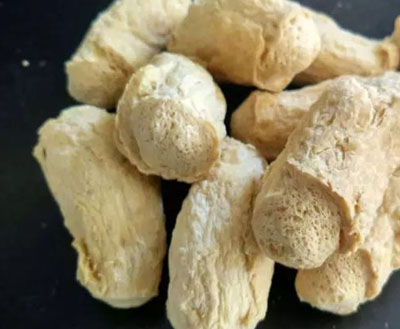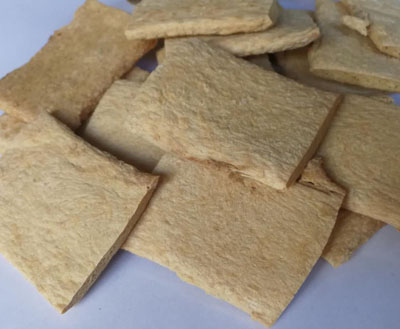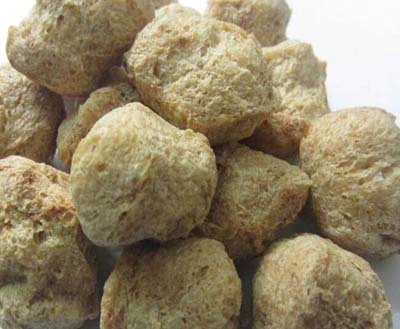How Much Do You Know About Textured Vegetable Protein?
Textured vegetable protein, also known as TVP, is a meat substitute in many vegetarian products. You may also notice it on the shelves of supermarkets or health food stores. Its unique texture and mild flavor make it a great addition to sauces, plant-based chili blends, and veggie burgers. It is also used to bulk up meat dishes and add extra protein.
Still, despite its widespread use, you may not be sure exactly what TVP is and how it affects your health.
In this article, learn what TVP is, how it's made, and whether it's good for you.
How to produce tissue structured plant protein TVP?
Soybeans, peas, legumes, or grains are low in fat and high in fiber and protein, making them a nutritious and healthy basis for new meat analogs. The global shift away from meat has led to an increased demand for these TVP textured vegetable proteins (TVP), which can often be purchased as dried blocks or flakes.
Textured Vegetable Protein
How is tissue structured vegetable protein TVP produced?
Higher moisture content for meaty results
How is TVP made? Vegetable protein isolate from, for example, beans or peas is passed through an extruder. In the process, it is steamed, heated and then - still hot - extruded from the machine nozzle. Once the substance has cooled, it is transformed into the desired form.
In order to obtain a fibrous, chewy, and meat-like TVP for veggie burgers, it needs to be extruded at a higher moisture content of 50-70%. For sausages and, for example, chicken nuggets, only 20-30% is needed. The moisture content contributes to the formation of a fibrous structure that looks and tastes like natural meat.
Meatless meat extrusion equipment
Thus, the extrusion process starts with a premix made from soybeans, wheat, peas, lentils, etc. These are then transferred to a twin-screw extruder, where they are heated by steam, sheared, and the presence of water to form a flesh-like structure. When the material leaves the extruder die, the structure is ready for further processing using different dyes or flavors depending on the final product. The dye shape plays an important role here because it determines the final product - for example, a round cross-section tool for sausage-like products or a square cross-section for chicken analogs.
Textured Vegetable Protein
Potential Benefits
Due to its impressive nutritional profile, TVP can provide a variety of health benefits.
Rich in Protein
TVP is a great source of protein, with 9 grams (1 credible source) per 1/4 cup (17 grams) serving of a dry product.
Protein plays a vital role in many aspects of your health. For:
Tissue repair
Wound healing
Muscle growth
More importantly, it helps with weight loss because it helps regulate your appetite and makes you feel fuller for longer.
TVP is especially useful for vegetarians and vegans who have difficulty getting enough plant-based protein.
Textured Vegetable Protein
Good source of fiber
With 3 grams of fiber per serving, TVP is an excellent way to increase the amount of fiber in your diet. Fiber slows the absorption of sugar in the blood. This can help stabilize your blood sugar levels after eating.
It also promotes regularity, reduces appetite, and helps control cholesterol levels to support heart health. In addition, fiber can enhance the health of the gut microbiome (the healthy bacteria in your gut), which can affect everything from digestive health to immune function.
May support heart health
TVPs are often made from soybeans and have long been studied for their presumed heart health benefits. In particular, soy protein has been shown to lower cholesterol and triglyceride levels, both of which are risk factors for heart disease.
In fact, a review of 17 studies showed that regular soy consumption reduced the risk of heart disease and stroke. In another review, eating at least 25 grams of soy protein per day was found to lower blood pressure levels in postmenopausal women.
TVP is rich in protein and fiber, which helps support heart health.
Find a Professional Textured Vegetable Proteins Production Line Supplier
As a professional textured vegetable proteins production line manufacturer. According to customer requirements, SENA can provide customers with customized solutions in line with their actual production, and realize the turnkey project of dry TVP food processing equipment.
When you contact us, please provide your detailed requirements. That will help us give you a valid quotation.




评论
发表评论